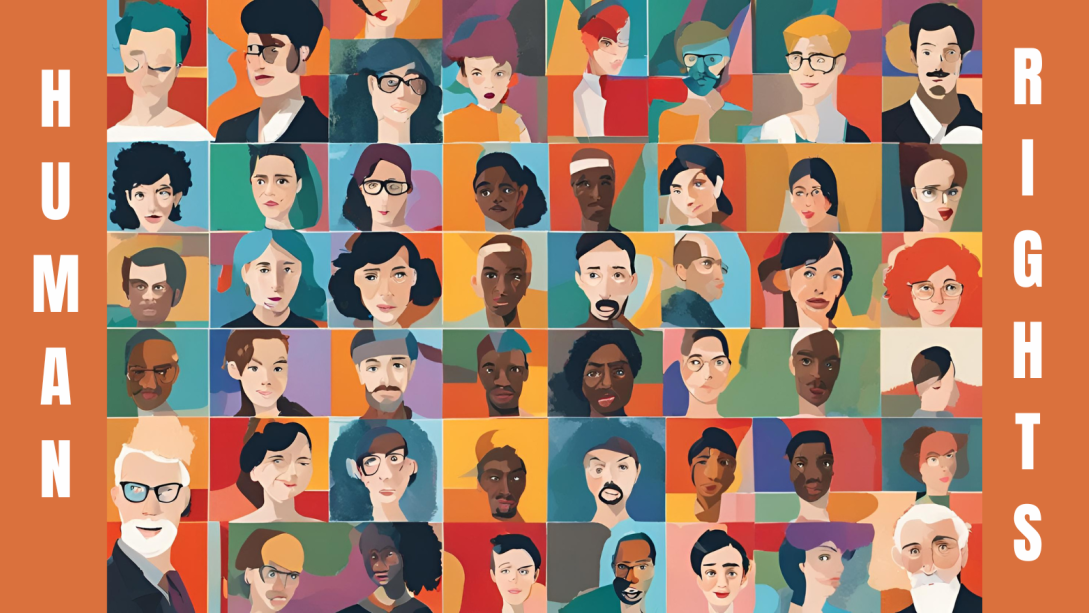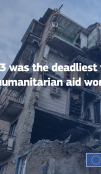The EU at the Human Rights Council

As we navigate an increasingly complex geopolitical landscape marked by unprecedented challenges, the EU remains steadfast in its commitment to foster a world where human rights are respected, protected and fulfilled, democratic principles are upheld, and the dignity and freedom of all individuals are safeguarded. This is especially crucial in a time of multiple crises and conflicts, growing social inequalities, and increasing pressure on multilateralism and the rules-based order.
At HRC56, the EU constructively engaged in the negotiations of some 25 resolutions.
At this session, the Council adopted a resolution on the human rights situation in Eritrea, initiated by the EU, to renew the mandate of the Special Rapporteur. As reported by the Special Rapporteur as well as the Office of the High Commissioner, the state of human rights in Eritrea continues to be dire with no signs of improvement. Patterns of gross human rights violations persist unabated. Eritreans continue to be subjected to enforced disappearances and arbitrary and incommunicado detentions in inhumane conditions without due process safeguards. The indefinite military or national service amounts to forced labour and is linked to torture. Civic space continues to be completely closed in Eritrea. The Government tightly controls all aspects of public life. There is no independent media, no independent civil society organizations, and no political opposition parties operating within the country. The religious repression has also continued to escalate in Eritrea over the past year. At the same time, Eritrea suffers from an acute lack of rule of law with no independent judiciary or other accountability mechanisms. Against this backdrop, this Council has a duty to speak up and ensure a continuous and consistent monitoring and reporting. Sadly, Eritrea continues its policy of non or very limited engagement with international or African human rights mechanisms. At the Council, we reiterated that the principles of sovereignty and non-interference in internal affairs do not free states from their obligations under international human rights law. The very lack of consent of the country concerned with resolutions of this Council should not provide it with an easy tool to escape the international scrutiny. The resolution also aims to provide the country with another opportunity to set a meaningful cooperation with the UN.
At HRC56 the EU continued to ensure the integration of a gender perspective throughout the work of the HRC in general, including through mainstreaming gender equality in country and thematic contexts. We vigorously promoted action to achieve gender equality, and ensure the full recognition, and equal and full enjoyment of all human rights by all women and girls and their empowerment, free from all forms of discrimination, both online and offline. This year’s annual discussion on the human rights of women focused on economic violence as a form of gender-based violence. We underlined that economic violence is a pervasive form of abuse. It is a global challenge that we need to put an end to. An important form of economic violence is control over economic resources, which is one of the main barriers preventing women from leaving abusive relationships.
The EU also spoke out in Interactive Dialogues on Ukraine, Belarus, Occupied Palestinian Territory, Libya, Myanmar, Afghanistan, Syria, Burundi, Sudan and Venezuela. All statements of the EU at HRC56 can be found here.
We organised and co-sponsored several side events at this session, including a joint EU-US side event on ‘Joint action to promote human rights defenders online’. We also co-organised a side event with Central Asian countries on addressing gender-based violence and a side event on the right to academic freedom.
In a Team Europe approach, EU Member States presented additional resolutions, joint statements and side events on a variety of subjects, including on the freedom of expression, the independence of judiciary, on sexual and gender-based violence, on the rights of people with HIV/AIDS, and on free pre-primary and secondary education.





